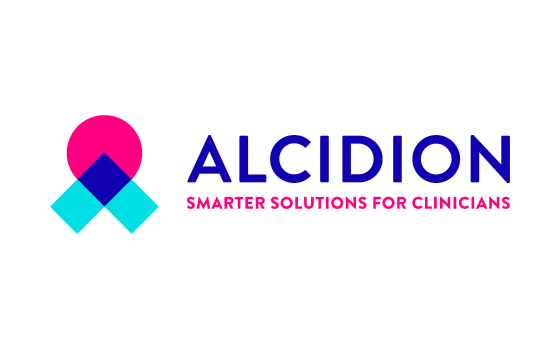 An early warning system that helps busy doctors, nurses and other healthcare professionals to quickly identify when patients are at risk of deterioration is to be deployed across hospitals and community settings throughout Lanarkshire.
An early warning system that helps busy doctors, nurses and other healthcare professionals to quickly identify when patients are at risk of deterioration is to be deployed across hospitals and community settings throughout Lanarkshire.
Patientrack, which first hit headlines in Scotland for helping staff at NHS Fife to transform clinical practice and to significantly cut cardiac arrests, will now be deployed across the entirety of NHS Lanarkshire in a new five-year contract with smart health technology provider Alcidion.
The decision, driven by clinical demand for the system in Lanarkshire, follows a robust trial of the Patientrack electronic observations and alerting system at University Hospital Monklands. The system was deployed into the hospital’s Operational Command Centre - the first of its kind anywhere in Scotland - where large-scale screens show staff the status of each patient throughout the hospital.
The new agreement will see Patientrack rapidly expanded to help many of the 12,000 staff working in NHS Lanarkshire's communities, health centres, clinics and at three district general hospitals – University Hospital Hairmyres, University Hospital Monklands and University Hospital Wishaw.
Donald Wilson, NHS Lanarkshire’s director of information and digital technology, said: "This implementation of Patientrack will expand on what we have learned from the Monklands digital hospital initiative and its links to the command centre we have established at the current site."
In NHS Lanarkshire's three acute hospitals, Patientrack will allow nurses to digitally capture patient vital signs at the bedside before it automatically calculates a patient’s early warning score and alerts clinicians to attend when needed.
In the community, the system will be configured to the specific needs of a range of relevant services, for example, mental health.
Lynette Ousby, UK general manager for Alcidion, said: "The project at NHS Lanarkshire is a direct response to an active clinical demand for a technology that is genuinely useful for hard working NHS professionals. The expansion of Patientrack across NHS Lanarkshire is demonstrable of an appetite in Scotland to use health tech to deliver the best and safest care possible for patients.
"We are committed to making this a huge success in Lanarkshire, and to supporting the ‘once for Scotland’ mission to accelerate digital technologies across the country when they have proven they can deliver."
Patientrack is also used more widely in other parts of the UK to spot patient deterioration and allow early intervention. Hospitals in England, for example, have innovated with the system to help identify and manage conditions including sepsis, and to even predict and prevent deadly illnesses such as hospital acquired acute kidney injury.
Alcidion also plans to launch a new technology into the NHS during 2020 in order to provide the NHS with new options around integrating and realising more value from existing IT, and in embracing modern technologies that can automate thousands of routine processes and care plans currently manually delivered by doctors and nurses.
Alcidion Group Managing Director, Kate Quirke, said: "Supporting the delivery of NHS Lanarkshire’s clinical and technology strategy is an important opportunity for Alcidion. The NHS is a core focus for Alcidion globally, and Scotland is an important part of that focus as we work to help hospitals advance patient safety and to use technology to make the right thing to do the easiest thing to do."
About Patientrack
Patientrack helps hospitals deliver safer care - which is also more cost-effective care - by ensuring observation and assessment protocols are carried out correctly and consistently, and by automatically calculating early warning scores and alerting clinicians when interventions are needed. Through early identification of deteriorating patients, and the promoting of necessary assessments, Patientrack helps hospitals meet national and local targets for improvements in patient safety, improving patient outcomes and supporting frontline staff, while at the same time cutting costs and reducing paper. Patientrack was developed in conjunction with health professionals and its effectiveness in delivering both patient safety and cost improvements has been proven in a peer-reviewed clinical journal.Hospitals in the UK that use Patientrack include Manchester University NHS Foundation Trust, Western Sussex Hospitals NHS Foundation Trust, George Eliot Hospital NHS Trust, Harrogate and District NHS Foundation Trust, Royal Derby Hospital, Bolton NHS Foundation Trust, Basildon and Thurrock Hospitals NHS Foundation Trust, St Helens and Knowsley Teaching Hospitals NHS Trust, Stockport NHS Foundation Trust, Pennine Acute Hospitals NHS Trust, Brighton and Sussex University Hospitals NHS Trust, Dartford and Gravesham NHS Trust, NHS Fife, Taunton and Somerset NHS Foundation Trust and Noble's Hospital in the Isle of Man.
About Alcidion
Alcidion Ltd (ASX:ALC) has a simple purpose, that is, to make healthcare better with smart, intuitive solutions that meet the needs of hospital and allied healthcare, worldwide. Alcidion incorporates three healthcare software companies previously known as Alcidion Corporation, Patientrack and Smartpage, and MKM Health, an IT solutions and services provider. Each company brings a complementary set of products and skills that create a unique offering in the global healthcare market; solutions that support interoperability, allow communication and task management, and deliver clinical decision support at the point of care to improve patient outcomes. With over 25 years of combined healthcare experience, the Alcidion Group of companies brings together the very best in technology and market knowledge to deliver solutions that make healthcare better for everyone.